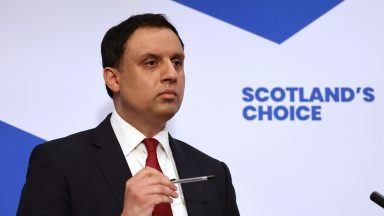MPs are back at Westminster and many Tories are not happy with the PM.
Every Prime Minister is engulfed by crises that threaten to topple them. It could almost be written into the job description.
Harold Wilson had a run on his leadership after the devaluation crisis in 1967. He faced his party conference and in relation to the fever pitch speculation about leadership conspiracies, declared: “I know what is going on. I am going on.”
Margaret Thatcher may have been toppled by “treachery with a smile” as she called it, but it was the community charge which became her poll thwacks and removed her from office.
Her successor John Major never recovered his authority after the debacle of Black Wednesday in 1992, eventually resigning the Tory leadership to quell internal dissent, principally over Europe, although he hirpled on as Prime Minister for a few more miserable years.
The loss of a vote on tuition fees in 2004 may well have led Tony Blair to resign.
Defeat in the EU referendum buried David Cameron and the inability to get the Commons to agree a Brexit deal did it for Theresa May.
What is striking just now about the deep unease on the Tory benches at Westminster is that concern with Boris Johnson’s premiership comes less than a year after a landslide election victory, in what has proved to be a case of ‘to the victor, a cornucopia of problems’.
The issue of concern for Tories is that many of the problems are self-inflicted and involve decisions which are really run of the mill for governments. It seems everything he touches turns into a problem.
Notwithstanding that Covid would test any Prime Minister, it is Johnson’s perceived inability to get the basics right that has the tea room hubbub ask, how long can this go on?
Indeed, a poll at the weekend indicated that Labour are now neck and neck with the Tories, having lost so comprehensively less than a year ago.
What stands out perhaps uniquely in the case of the current Prime Minister is that much of the sense of chaos is not engineered by some great policy or event beyond his control. The kind of events faced by Wilson, Thatcher et al.
Rather it is the feeling that he is simply not on top of the job. Many, of course, have claimed that he is not up to the job at all.
The charge is that the most basic decision-making processes are handled so incompetently that it is a symptom with no cure.
The sheer number of U-turns of late suggest a government constantly at the mercy of events where changes take place because the initial stances have not been thought through.
Johnson looks like the first figurehead Prime Minister of modern times, someone who holds the job but appears not to have done the requisite intellectual spadework to explain a policy and carry the public.
The showman is always on show, except it is an act that is wearing thin. His impulse for trumping serious questions with a flash of personality looks anything from inappropriate to incompetent depending on circumstances. It is sometimes hard to resist concluding this is a premiership masquerading as reality TV.
Yesterday, he was rebuked by the Speaker and genuinely incensed the leader of the opposition with what was perceived to be an attempted smear on Keir Starmer by implying he was soft on the IRA because he served on Jeremy Corbyn’s frontbench.
If it was an instinctive remark then it was a poor debating point. If it was a pre-planned attack then Conservatives should be worried about the PM’s lack of judgement.
When Harold Wilson’s chancellor James Callaghan resigned over devaluation, Roy Jenkins replaced him in a cabinet that also boasted Denis Healy, Barbara Castle and Richard Crossman.
The Thatcher cabinets were stuffed with serious thinkers and bruisers who knew their way around the political system.
It does not look good for Johnson that his cabinet looks the most lightweight of recent times and his problem in part appears a fondness to consort with an echo chamber rather than a serious set of ministers who want to road test ideas and policy positions.
Even Tony Blair, who did not have time for cabinet government that was too ponderous, could count on individuals who could be sent into bat for the government on the stickiest of wickets.
Some of Johnson’s ministers seem to compound the aura of a general sense of disarray. But they deal in that priceless currency that guarantees longevity: loyalty.
The PM’s position is not under any serious threat at least in the short term. But how long will MPs put up with the current situation?
John Selwyn-Gummer who served in the Heath government of 1970-74 said events took hold of that government, not the other way around. If that was the case then we are witnessing a real sense of déjà vu.
The Conservative party is if nothing ruthless in disposing of leaders that threaten their electoral supremacy.
It was the journalist, the late Alan Watkins, who coined the phrase “men in grey suits” to describe the unwelcome visitation of senior party figures who would be dispatched to tell a leader, “time’s up, old boy”.
Those suits belonged to a gentler age when senior Tories of an aristocratic background knifed one another whilst sounding ever the gentleman about it. What is that one about the definition of a diplomat: someone who tells you to go to hell and you end up looking forward to the trip.
This Conservative party is more nouveau riche than knight of the shire, more bovver boy than public school boy. If Johnson does not get a grip and soon he will be told to naff off, the only question will be how soon?



























